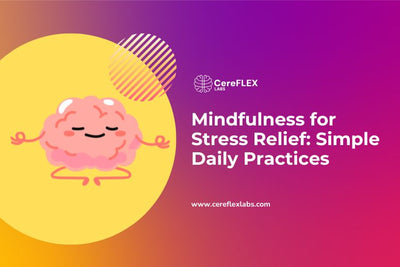Ashwagandha (Withania somnifera) is a powerful herb used in Ayurvedic medicine to promote energy, resilience, and hormonal health. Modern research confirms what traditional medicine has known for centuries—Ashwagandha can help lower cortisol levels, improve mood, and support testosterone production in men.
These combined benefits make Ashwagandha a popular choice for:
- Men seeking natural hormone support
- Athletes aiming to boost performance and recovery
- Health-conscious individuals looking to manage stress with plant-based supplements
This guide breaks down the science, benefits, dosage, and safety tips you need to know to decide if Ashwagandha fits your health routine.

Ashwagandha, also known as “Indian winter cherry” or “Indian ginseng,” is an evergreen shrub native to India, Africa, and parts of the Middle East. It has been used for over 3,000 years in Ayurvedic medicine, India’s traditional health system.
In Ayurveda, Ashwagandha is valued for its ability to balance the body, mind, and environment. Traditionally, it’s been used to boost energy, support immunity, and help the body cope with stress.
The herb’s benefits come from withanolides, natural compounds with anti-inflammatory, antioxidant, and hormone-regulating effects. These qualities place Ashwagandha among adaptogens and their benefits—a group of herbs that help the body adapt to physical and emotional stress.
Today, Ashwagandha is gaining worldwide attention as a natural solution for stress management, hormonal balance, and overall wellness.
Health Benefits of Ashwagandha
Ashwagandha has been studied for its wide range of health benefits, particularly in stress management and hormonal balance. As a powerful adaptogen, it helps the body maintain stability during physical, emotional, or environmental stress.
Here are some of the most science-backed benefits of Ashwagandha:

May Help Reduce Stress
Ashwagandha is one of the most recognized herbs for stress management. It helps the body regulate cortisol—the primary stress hormone—and supports emotional resilience.
How Ashwagandha Works
Ashwagandha influences several biological pathways involved in the stress response. It may:
- Regulate heat shock proteins (Hsp70) that protect cells from stress.
- Lower activity in the hypothalamic-pituitary-adrenal (HPA) axis, reducing cortisol production.
- Improve resilience by balancing stress-related proteins like JNK-1.
Supporting Research
Two small but promising studies have shown Ashwagandha’s ability to lower stress:
- In a study of 58 adults, those taking 250–600 mg daily for 8 weeks reported significantly lower cortisol levels and improved stress scores compared to a placebo.1
- Another study with 60 participants found that 240 mg daily for 60 days reduced anxiety more effectively than a placebo.2
These findings make Ashwagandha a promising option for people managing chronic stress, burnout, or emotional fatigue.

Might Support Testosterone
Ashwagandha is also gaining recognition as a natural option for testosterone support, particularly in men dealing with low levels or fertility challenges.
How Ashwagandha Supports Testosterone
By reducing stress and balancing hormones, Ashwagandha may:
- Improve sperm quality and motility
- Support reproductive hormone profiles
- Enhance muscle strength and lean mass, especially when combined with resistance training
Supporting Research
Research supports Ashwagandha’s role in testosterone enhancement:
In a study of 43 overweight men aged 40–70, participants taking Ashwagandha for 8 weeks experienced an 18% increase in DHEA-S (a hormone that helps produce testosterone) and a 14.7% increase in testosterone compared to a placebo group.3
These results suggest Ashwagandha may benefit men experiencing hormonal decline, fatigue, or reproductive health concerns, particularly when combined with exercise and a balanced lifestyle.
May Reduce Inflammation
Ashwagandha contains withanolides, natural compounds with anti-inflammatory and antioxidant properties. These compounds help the body manage chronic inflammation, which is linked to long-term health issues like heart disease, metabolic disorders, and immune dysfunction.
How Ashwagandha May Reduce Inflammation
Research suggests that Ashwagandha can:
- Lower levels of inflammatory proteins, which are often elevated in chronic stress and illness.
- Support immune system balance, reducing the body’s inflammatory response.
Supporting Research
Animal studies have shown that Ashwagandha helps reduce inflammatory markers.4
While more human studies are needed, these early findings make Ashwagandha a promising addition to wellness routines aimed at reducing long-term inflammation.
May Improve Brain Function
Ashwagandha is increasingly used in cognitive enhancement supplements thanks to its ability to protect brain cells from oxidative stress and support mental clarity.
How Ashwagandha Supports Brain Health
Ashwagandha’s brain benefits are linked to its ability to:
- Reduce oxidative damage, which can impair memory and focus over time.
- Improve mental processing, including attention, reaction time, and decision-making.
- Support emotional balance, reducing brain fog caused by stress.
Supporting Research
A review of five clinical studies suggests Ashwagandha may:
- Improve thinking skills in older adults with mild cognitive decline.
- Support focus and mental performance in people experiencing stress or mental fatigue.
- Offer benefits for individuals with schizophrenia, improving cognitive test performance.5
These findings position Ashwagandha as a helpful tool for maintaining mental sharpness, particularly in older adults or those under chronic stress.

Might Improve Sleep Quality
Ashwagandha is also valued for its role in improving sleep quality, especially for people dealing with stress-related sleep issues. Its calming effects on the nervous system make it a popular addition to hormonal balance support routines.
How Ashwagandha Supports Better Sleep
Ashwagandha may improve sleep by:
- Reducing cortisol levels, which can disrupt sleep cycles when elevated.
- Calming the nervous system, making it easier to fall and stay asleep.
- Promoting deeper rest without the grogginess often caused by sleep medications.
Supporting Research
A study of 50 older adults (ages 65–80) found that taking 600 mg of Ashwagandha root daily for 12 weeks significantly improved sleep quality and morning alertness compared to a placebo.6
These benefits make Ashwagandha a promising option for those seeking natural sleep support without relying on sedative medications.
Dosage and Usage Guidelines
Most clinical studies have tested Ashwagandha in daily doses ranging from 250 mg to 600 mg, though some have used up to 1000 mg. The ideal dosage depends on your health goals, body weight, and product strength. Always start with a lower dose to assess tolerance and consult a healthcare provider if unsure.
When you take Ashwagandha can affect the benefits you experience. Morning use is often best for boosting focus and energy, while evening use may help reduce anxiety and improve sleep. Some people split their daily dose to support both daytime and nighttime needs.
Ashwagandha is available in several forms:
- Capsules or tablets – Convenient and pre-measured for easy daily use.
- Powders – Versatile for mixing into drinks or food, though they have a bitter taste.
-
Liquid extracts or tinctures – Absorb quickly but may have a strong flavour.
Choose the form that fits your routine. Capsules are ideal for simplicity, while powders and tinctures offer flexible dosing.
Practical Tips for Better Absorption of Ashwagandha
To get the most from Ashwagandha, consider how you take it and what you pair it with. Taking Ashwagandha with food can improve digestion and reduce the chance of stomach discomfort. Pairing it with healthy fats, such as avocados, yogurt, or nut butter, may also enhance absorption since the active compounds, withanolides, are fat-soluble.
Choose third-party tested supplements that specify their withanolide content to ensure you’re getting a safe and effective product. Brands that provide Certificates of Analysis (COAs) or list testing details on their websites typically offer better transparency and reliability.
If you’re taking other supplements or medications—especially those for mood, sleep, or thyroid health—consult your healthcare provider. Ashwagandha’s calming effects may interact with sedatives, antidepressants, or stimulants. It may also influence hormone levels, so medical advice is recommended for anyone with thyroid conditions, autoimmune disorders, or hormone-sensitive health concerns.
Safety, Side Effects, and Interactions
Ashwagandha is generally safe when taken as directed, but some people may experience mild side effects such as stomach upset, nausea, drowsiness, or diarrhea. Rare cases of liver issues have been reported. If you notice symptoms like yellowing of the skin or eyes (jaundice), seek medical attention immediately.
Certain people should avoid Ashwagandha or consult a healthcare provider before using it. This includes pregnant or breastfeeding women, people with thyroid disorders, hormone-sensitive conditions, autoimmune diseases, or liver problems. Anyone preparing for surgery should also stop using Ashwagandha well in advance.
Ashwagandha may interact with:
- Immunosuppressants
- Sedatives or CNS depressants
- Thyroid hormone medications
- Diabetes or blood pressure medications
- Hepatotoxic drugs (those affecting the liver)
If you are on any medication or managing a chronic condition, talk to your doctor to ensure Ashwagandha is safe for you.

Quality, Sourcing, and Buying Tips
In Canada, herbal supplements like Ashwagandha are regulated by Health Canada’s Natural and Non-Prescription Health Products Directorate (NNHPD). Every approved product must display a Natural Product Number (NPN) on its label, showing it meets safety and quality standards.
When choosing Ashwagandha, look for products that:
- List an NPN number on the packaging (required in Canada)
- Specify standardized withanolide content (typically 2.5% to 10%)
- Provide third-party testing results to confirm purity and potency
Third-party testing by ISO-accredited labs ensures you’re getting a clean, effective product without contaminants.
Red Flags to Avoid:
- No NPN number on the label
- No mention of withanolide standardization
- Suspiciously low prices or unverified online sellers
- Lack of Certificate of Analysis (COA) or third-party lab testing information
Choosing a reputable, transparent brand ensures you get the real benefits of Ashwagandha without unnecessary risks.
Comparing Ashwagandha to Other Adaptogens
Ashwagandha is part of a wider group of herbs known as adaptogens, which help the body cope with stress and support balance. However, each adaptogen works differently, offering unique benefits based on individual health needs.
Below are side-by-side comparisons of Ashwagandha with other popular adaptogens: Rhodiola, Maca, and Ginseng. These summaries can help you choose the right option for your goals, whether that’s boosting energy, reducing stress, or balancing hormones.
Rhodiola vs. Ashwagandha |
||
|---|---|---|
|
Feature |
Rhodiola (Rhodiola Rosea) |
Ashwagandha (Withania Somnifera) |
|
Primary Function |
May Support Energy, Focus, and Stress Resilience |
May Promote Relaxation, Stress Reduction, and Recovery |
|
Effect on Stress |
Balances Stress Without Drowsiness |
Lowers Cortisol; Calming but May Feel Sedating for Some |
|
Energy Impact |
May Enhance Endurance and Reduce Fatigue |
More Calming; May Lower Energy Levels in Some Users |
|
Cognitive Benefits |
May Support Mental Clarity and Focus |
May Promote Calmness With Mild Cognitive Support |
|
Adrenal & Hormonal Support |
Modulates Stress Response |
Supports Adrenal Health and Hormone Balance |
|
Best For |
Mental Performance, Fatigue, Daytime Stress |
Anxiety, Sleep Support, High Cortisol Management |
Maca vs. Ashwagandha |
||
|---|---|---|
|
Feature |
Maca (Lepidium Meyenii) |
Ashwagandha (Withania Somnifera) |
|
Primary Function |
May Boost Energy, Hormonal Balance, and Libido |
May Promote Relaxation, Stress Reduction, and Calm |
|
Effect on Stress |
May Support Mood and Resilience Without Sedation |
May Calm the Nervous System and Reduce Anxiety |
|
Energy Impact |
May Increase Physical Endurance and Vitality |
May Be Calming; Better Suited for Relaxation and Sleep |
|
Hormonal Support |
May Support Hormonal Balance, Libido, and Fertility |
May Regulate Cortisol and Support Hormone Balance |
|
Cognitive Benefits |
May Improve Mood, Focus, and Memory |
May Promote Mental Calmness With Mild Cognitive Support |
|
Best For |
Low Energy, Hormonal Imbalances, Menopause Support |
Chronic Stress, Sleep Support, Anxiety Relief |
Ashwagandha vs. Ginseng |
||
|---|---|---|
|
Feature |
Ashwagandha (Withania Somnifera) |
Ginseng (Panax Ginseng / Korean Red Ginseng) |
|
Primary Function |
May Promote Calming, Stress Reduction, and Hormonal Balance |
May Support Energy, Cognitive Function, and Immunity |
|
Effect on Stress |
May Reduce Cortisol, Promote Calm and Relaxation |
May Regulate Stress Hormones, Enhance Mood and Focus |
|
Energy Impact |
May Enhance Vitality and Reduce Fatigue |
May Provide Quick Energy Boost and Combat Fatigue |
|
Cognitive Benefits |
May Support Memory, Focus, and Brain Health |
May Improve Mental Clarity, Focus, and Productivity |
|
Hormonal Support |
May Balance Cortisol and Support Testosterone and Thyroid Function |
May Support Blood Sugar and Hormonal Regulation |
|
Best For |
Stress, Sleep, Hormonal Balance, Muscle Recovery |
Energy, Focus, Immunity, and Sexual Performance |
Conclusion
Ashwagandha, Rhodiola, Maca, and Ginseng all offer valuable support for stress management, hormonal balance, and mental performance. The right choice depends on your individual needs—whether you’re looking to reduce anxiety, improve sleep, increase energy, or balance hormones.
Ashwagandha stands out for its ability to lower cortisol, promote relaxation, and support testosterone levels, making it a great option for those seeking calm energy and hormonal health throughout the day.
For those wanting a simple, well-rounded solution, the CereFlex Labs AM/PM Protocol combines Ashwagandha with other brain-supporting nutrients to help manage stress, improve focus, and promote relaxation—morning to night.
Whether you choose Ashwagandha alone or as part of a targeted supplement routine, understanding its benefits and proper use can help you feel more balanced, focused, and resilient every day.






